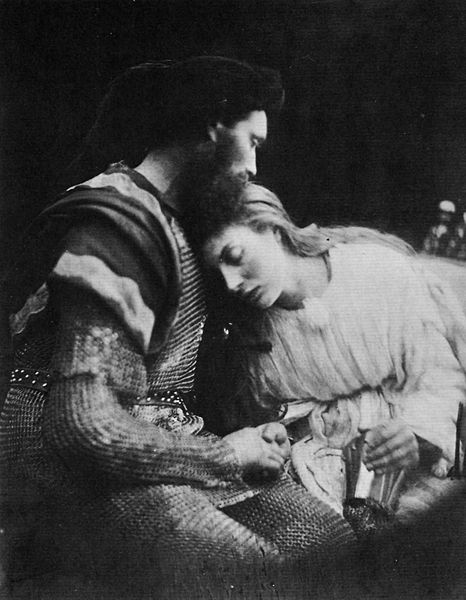There was once a little boy named Brave, who was the son of the Chief of a great tribe. Brave was quite brave and strong, and everyone expected greatness out of him someday. However, he was also impulsive and mischievous, and quite known for getting into trouble. He had a band of six boys who followed him around like puppies and oohed and awed at his every stunt.
One day Brave came across a hollow in the ground, which he did not know was the grave of an old medicine woman. Assuming it was just the place of a dried out puddle, he tried to walk over it and tumbled and fell back. Confused, he tried once more and fell back on his face, with his bottom high in the air. At this point he could swear he heard the trees shaking their leaves in laughter and the wind giggling behind him. Brave shook his head and went home. The old men of the village told him that that was the grave site of an old medicine woman, and his six friends insisted he show them the next day.
The next day, Brave decided to play a prank on his friends and crawl in the grave to scare them. So he told them he would meet them at the grave, then went and painted his face white as a ghost and crawled in the grave. As he was waiting for his friends, he started hearing a faint chanting. The chanting grew louder and then an old woman whispered in his ear, "WHO ARE YOU?" Brave screamed and bolted upright. Right at this time the six boys had come upon the grave, and ran screaming through the woods as they thought they had saw a ghost. Brave followed them, scared senseless, and as he looked over his shoulder he saw a crinkled eyed old woman smiling and waving behind him. Brave ran screaming and crying into the middle of the village, to the waiting laughter of the old men.
Author's Note: This is based on the original story
A Little Brave and a Medicine Woman. In the original story a boy does tumble and fall, but there is no ghost or laughing. Furthermore, the woman does not whisper in his ear, although the boy does think he hears chanting. I thought it would be fun to make Brave a little more cocky and to also give the grave a ghost with a sense of humor
Story source:
Myths and Legends of the Sioux by Marie McLaughlin (1916).


























